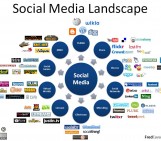
Reaching out to policymakers and sharing your research with them can seem like a daunting task! While there are many formal outlets for engaging with policymakers (such as completing questionnaires, contributing to workshops and participating in paring schemes), there are also more casual methods that can be done sporadically and with less effort. One example of this is engaging with policymakers on Twitter.
In a 2016 social media analysis, Twitter was found to be the primary social network used by world leaders. For policymakers, social media has gone from being an afterthought, to being a primary method of stimulating citizen engagement and managing their public image. In 2011, just 34% of the Members of the European Parliament (MEPs) were on Twitter. As of December 2017, that number is 81%. Members of the EU Commission are also largely on Twitter, including all of the EU Commissioners. Furthermore, each of the EU Commission’s Directorate Generals has its own official Twitter account.
So, policymakers are online… but why should you follow them?
- There are thousands of policymakers on Twitter within the EU alone. Following all of these policymakers would be an information overload and counterproductive. However, selecting some key policymakers working within your area of expertise is a fantastic way of keeping up with what information and research is needed.
- Following official EU Twitter accounts and key policymakers may give you inspiration for new research ideas, while also helping you understand how you can make your next research project more useful for policymakers.
- Funding! EU funding is extensive and new projects and funding opportunities are often advertised on Twitter. In addition, openings for traineeships and workshops are promoted heavily on the official EU Commission Twitter accounts.
Actively engaging
Following various policymakers and official accounts allows you to gain a better understanding of the policy landscape, but actively engaging will help you build or maintain relationships and ideally be seen as an expert in your field.
Communicating with policymakers through Twitter might be easier than some more formal engagement outlets, but it still requires time, perseverance and communication skills that generally aren’t used in everyday life. The rules for communicating with policymakers still apply – common language (rather than scientific jargon) should be used at all times, graphics should be simple and clear and you should be able to summarise your idea or argument in 3 sentences or less. Some more tips for actively engaging with policymakers are outlined below.
- Don’t just mention the official EU accounts in your tweet. While your tweet may reach a number of other people who manage the account, it is unlikely to reach individual policymakers. Instead, focus on specific people who are working on a project or policy that relates to your research. This may include high-level policymakers (such as an MEP or Commissioner), legislative assistants and policy officers. You can create different Twitter lists for policymakers working on particular issues or projects. This allows you to keep track of those policymakers you should be following more closely and those who you can include in tweets on particular topics.
- If you’re responding to a policymaker’s tweet on a topic relevant to your area of expertise, don’t be afraid to introduce yourself and your research. This will highlight your knowledge on the issue and hopefully leave a lasting impression.
- When you’re tweeting about your own research, try to connect it to relevant policy issues and tag specific policy institutions and people. This enables those working in the policy-realm to see your research’s application to their own work, without having to do additional thinking!
- Be unique. Make your posts stand out by using infographics, pictures, short videos or links.
- Don’t switch off over Christmas! While some policymakers have assistants managing their Twitter profiles, many formulate their own tweets or manage their account during the weekend and holidays! So, if you want to try engaging with policymakers on Twitter, the upcoming holiday period could be a great place to start. And if you want to take a break from technology over Christmas but also want to engage with policymakers, don’t worry… You can have your Christmas pudding and eat it too! By using a content management tool such as tweetdeck, you can compose tweets and release them at predetermined times.
Twitter has the potential to help you share your research for policy impact but understand your limits! Most of the researchers I know already work long hours and definitely don’t have time to spend two hours per day tweeting… and that’s okay! Do what you can, try to be consistent with the amount you post and have fun!
Further reading





stan
Hello everyone, was interesting to read your article. Usually i’m reading New York Times , but now i will read you too! (https://www.nytimes.com)